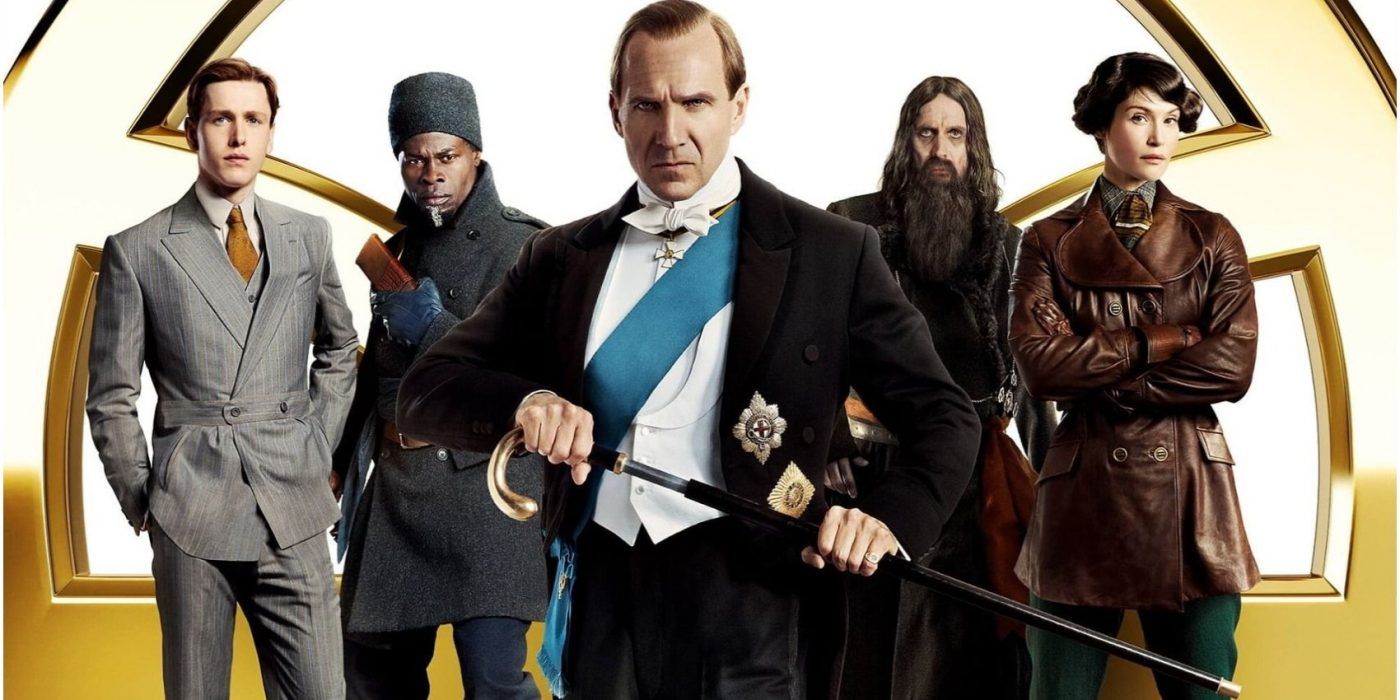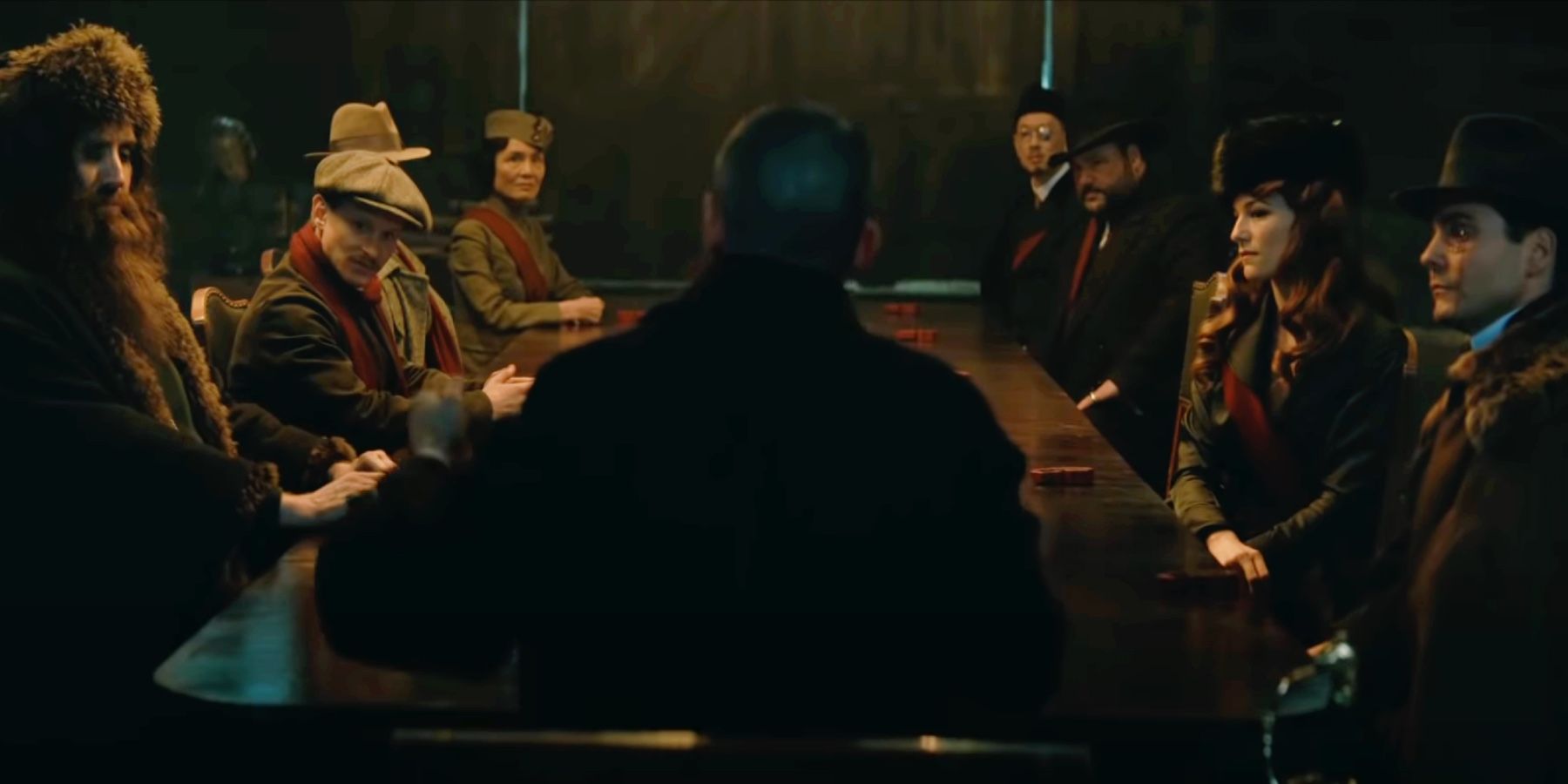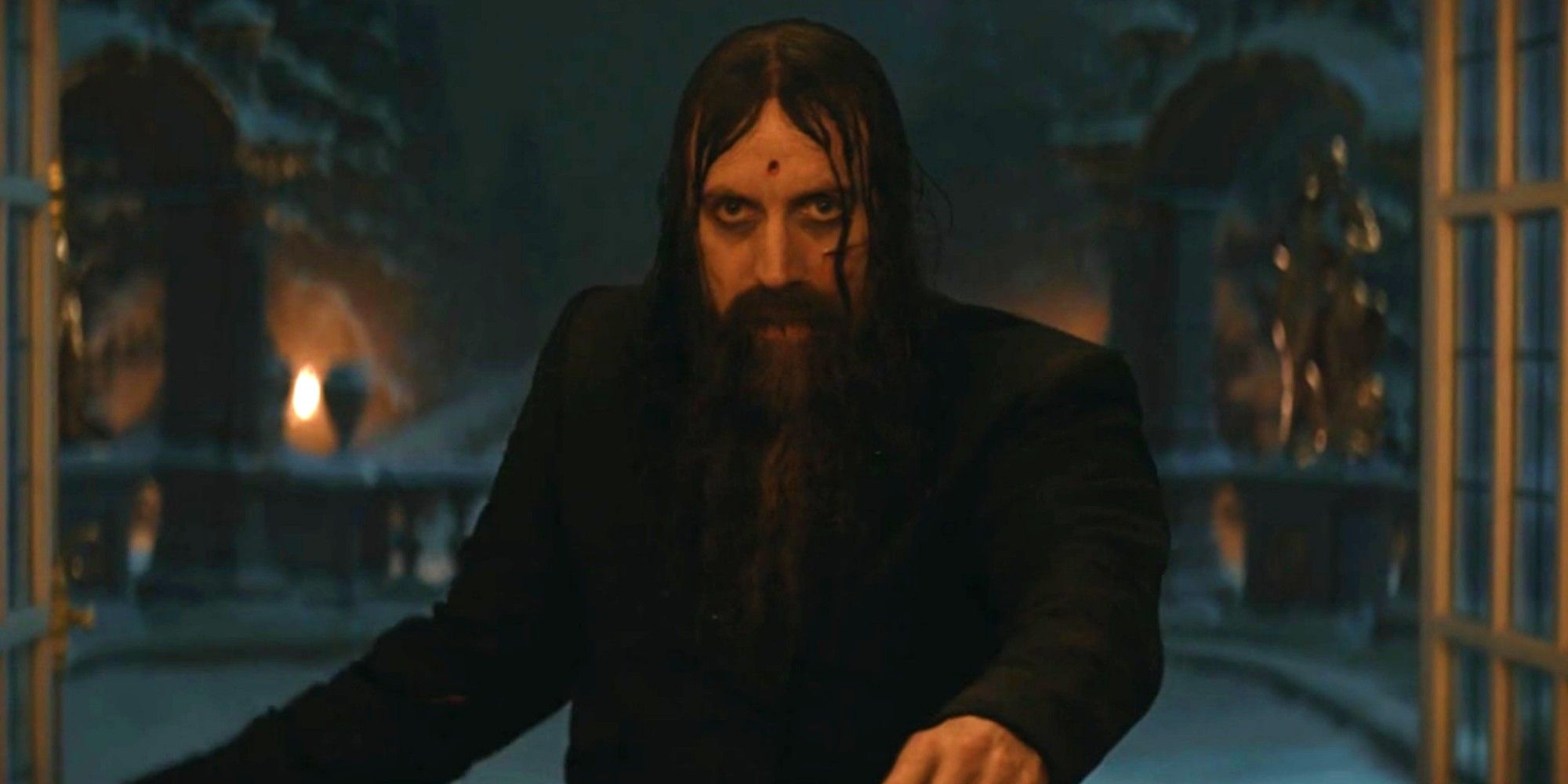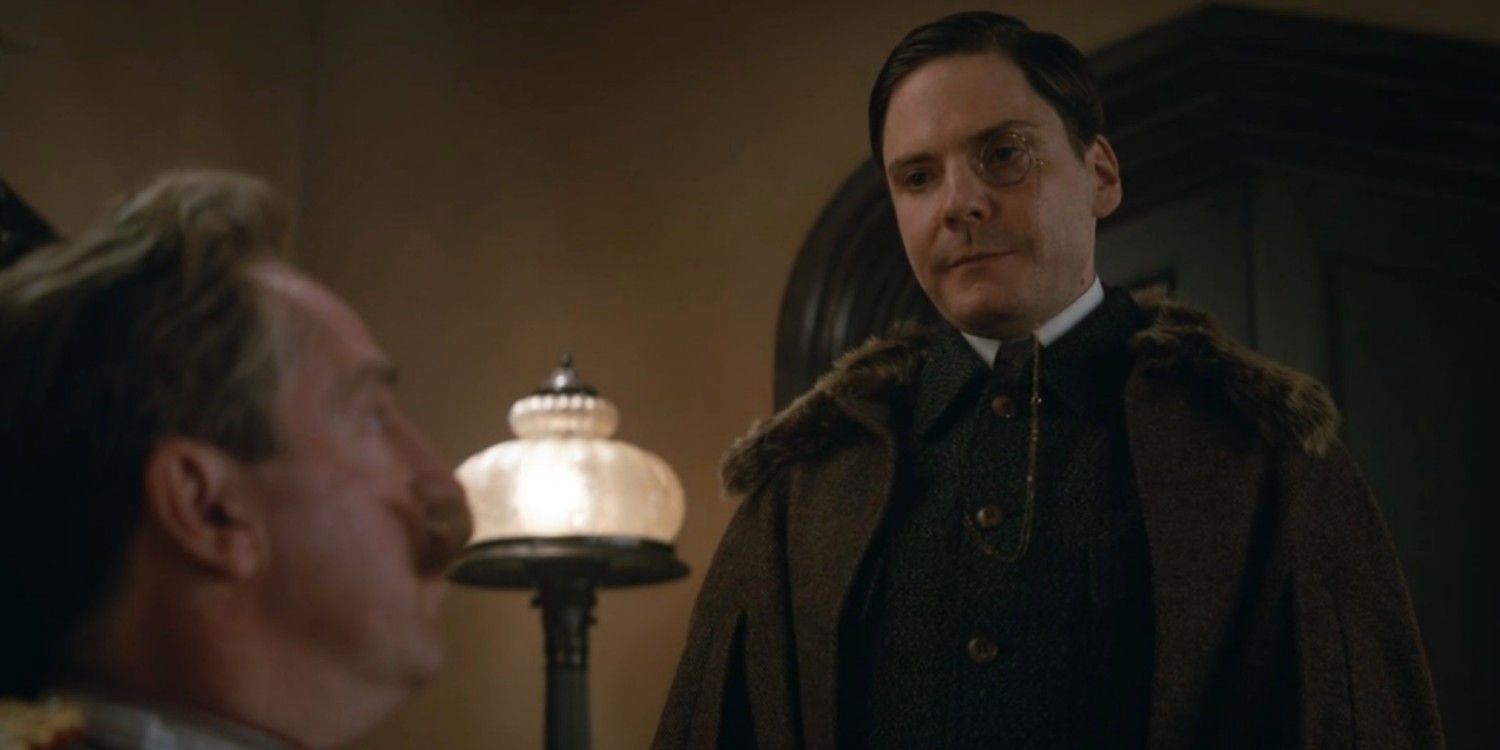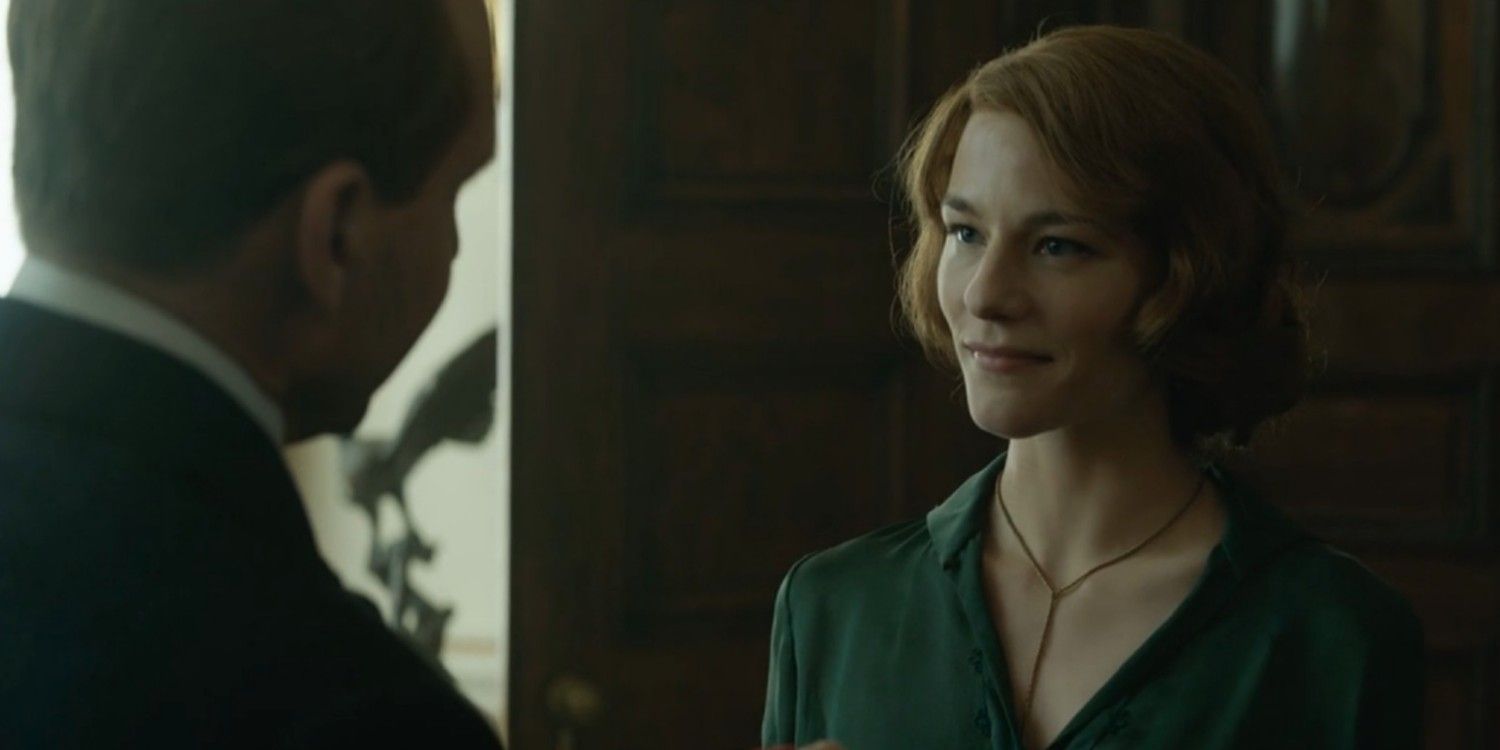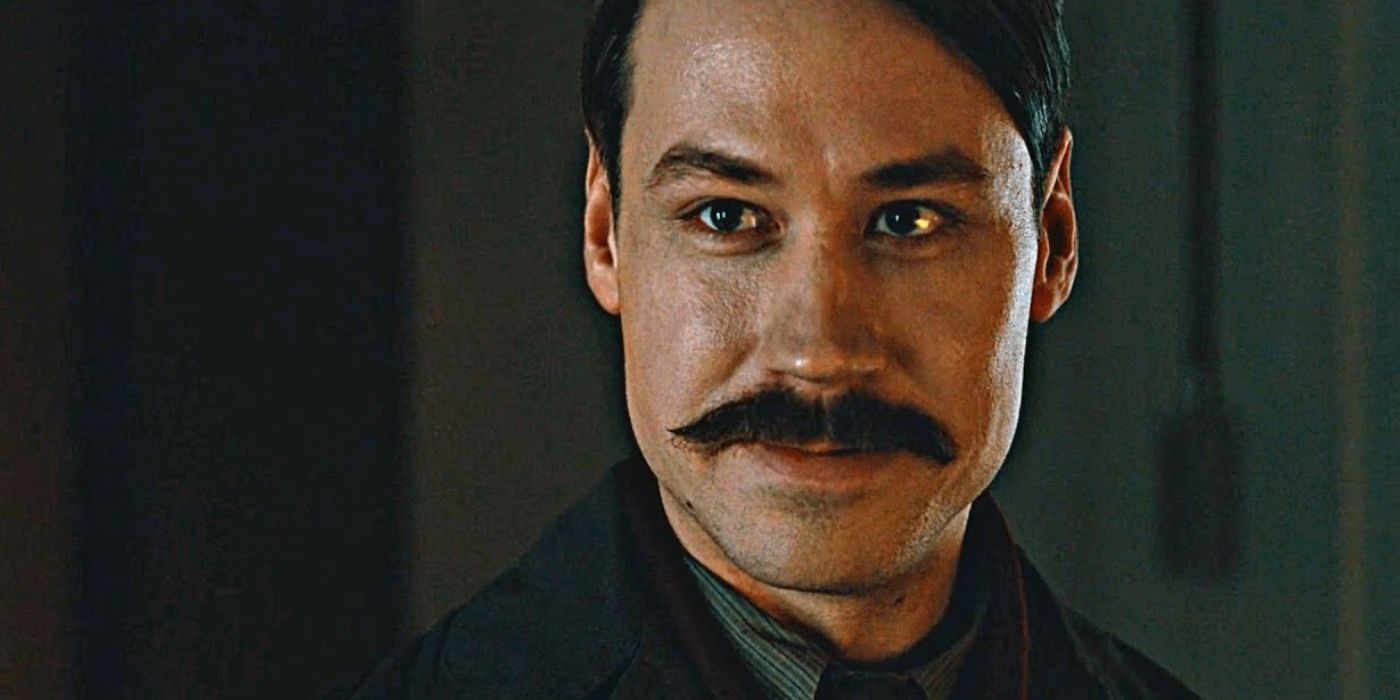Although set during World War I, The King's Man isn't a true-to-life drama, and it makes some notable changes to real-life history. For a franchise that stars an invisible intelligence agency and has made a name for itself as over-the-top, the fact that it is not historically accurate comes as no surprise. However, it is interesting to note that many of the events and people featured in The King's Man are actually based on true stories.
As depicted in The King's Man, World War I occurred from 1914-1918 and involved several major European countries. Events like the assassination of real-life King's Man character Archduke Franz Ferdinand in Sarajevo, the belated U.S. involvement, Lenin's revolution in Russia, and the dual abdication/execution of Kaiser Wilhelm II and Tsar Nicholas II at the end of WWI are also true — and are represented with a decent degree of accuracy in The King's Man. Some small discrepancies do occur, such as the fact that Gavrilo Princip, who fatally shot the Archduke, was not the same man who made an earlier attempt on his life using a bomb, as the film portrays. On the whole, however, The King's Man checks a lot of the boxes when it comes to introducing the true players and conflicts of WWI.
The King's Man is part of a fictional franchise, so it takes some key liberties with history. In addition to including many Easter eggs and references to Kingsman's main timeline, the film also establishes the origins of its fictional eponymous Secret Service agency by inserting them (and their enemies) into many of WWI's events. Here's every major change The King's Man makes to actual history.
Shepherd And His Evil Organization Are Fictional
The primary antagonists in The King's Man, Shepherd and his evil organization, are completely fictional. It's not uncommon for spy thrillers to feature a mysterious, henchmen-commanding antagonist to drive the conflict, but no such real-life counterpart exists for World War I. The Great War was the result of several different longstanding and interconnected conflicts and alliances, and can't be ascribed to the actions of a single person or group like in The King's Man. Thus, vengeful Scotsman Morton/Shepherd and his flock of political saboteurs are made up, just like the villains of Kingsman: The Golden Circle and Kingsman: The Secret Service. That said, every named member of the evil organization is based on a real person, even though they never colluded and probably never even met in real life.
Rasputin Was Assassinated By Russians, Not The British
One of The King's Man's best aspects is its outrageous portrayal of Grigory Rasputin, whose actual story is almost equally bizarre. In real life, Rasputin was a self-proclaimed holy man and healer who gained the favor of the Russian royal family and was most likely manipulating them. His ghoulish appearance, borderline nymphomania, creepy healing practices, and high poison tolerance are all features that The King's Man plays up, but which do align with rumors and facts from Rasputin's own time. Because of his strangeness, the film probably should have kept Rasputin as The King's Man's main villain.
Rasputin's actual assassination happened nearly exactly as The King's Man shows it, except for one crucial detail. According to the account of his actual killer, Russian nobleman Felix Yusupov, Rasputin was given poisoned cakes, to which he showed no reaction, shot in the chest, after which he sprung back to life and attacked his assassins, and finally shot in the head and dumped in the Malaya Nevka river. The King's Man hits all of these details but has the murder carried out by the fledgling Kingsman agency rather than Yusupov and his co-conspirators Dmitri Pavlovich and Vladimir Purishkevich. Although a theory about British involvement in Rasputin's death exists, it has largely been discredited by historians.
The Zimmerman Telegram Wasn't Decoded By A Civilian
The Kingsman franchise is known for being male-dominated, and the prequel is no exception, with The King's Man's cast of characters offering only one female supporting character, Polly, a.k.a. Galahad. Despite being consistently sidelined, Polly does make a crucial contribution to defeating Shepherd, as she decodes the telegram sent from Germany to Mexico encouraging the latter to invade the United States. This telegram, known as the Zimmerman Telegram, was a key factor of the real WWI, as was its decoding, which helped secure U.S. involvement in the war. Likewise, concern over the telegram's authenticity once decoded was a real issue back in 1917, which The King's Man addresses. What's fictionalized, however, is the involvement of private individuals in decoding the telegram, and how it was ultimately proved genuine. In reality, Nigel de Grey, a member of the British intelligence agency Room 40, was the one to crack the Zimmerman Telegram, rather than the fictitious predecessor to Taron Egerton's Kingsman character. To prove the contents of the Zimmerman Telegram were real, the British government obtained different copies directly from Mexico, rather than from a German spy on the Western front, as the story goes in The King's Man.
Erik Jan Hanussen Advised A Different German Ruler
Aside from Rasputin, the real historical figure Erik Jan Hanussen also features in The King's Man but in a much less accurate fashion. In the film, he's played by Daniel Brühl, who audiences likely recognize as Baron Zemo from the MCU. Hanussen is portrayed as a close advisor of Kaiser Wilhelm II, but this actually places him too early in Germany's history. The real-life Hanussen was an Austrian Jewish mentalist who advised not the Kaiser, but Adolf Hitler. Specifically, Hanussen appears to have instructed a young Hitler in psychology, performance, and crowd control through dramatic effect. The King's Man's end credits scene with Hitler sets up this relationship, but as for the film itself, Hanussen's proximity to Kaiser Wilhelm is a major historical change.
President Wilson Was Never Seduced & Blackmailed
Like Hanussen, Valerie Pachner's Mata Hari is named for a real figure but significantly altered for the purposes of The King's Man's story. The real Mata Hari was a Dutch performer/courtesan who acted as a spy for France but was later executed there after a botched attempt to seduce Kaiser Wilhelm's son for information. In the film, Hari is successful in carrying out this mission on President Woodrow Wilson instead, using footage of their sexual encounter to blackmail him into staying out of the war. While Wilson and the United States did indeed stay out of WWI for a long time, it was due to Wilson's pacifism and staunch U.S. neutrality. The Mata Hari scandal is thus one of the biggest changes to real-life history that happens towards the ending of The King's Man, since it strays so far from the true story.
Hitler Never Worked With An Illuminati Cabal
The post-credits scene of The Kings Man introduces Hitler to set up The Kings Man 2. While there's a lot of legend surrounding the Nazi's obsession with the occult and secret societies, there's no hard historical evidence this extended to Hitler. It is certain, however, that Adolf Hitler didn't work with an Illuminati-type evil cabal like Shepherds'. While it would be comforting to think the Nazis only rose to power because of a grand conspiratorial scheme, the reality is that Hitler achieved his twisted goals without much help from outside his inner circle. However, it should be noted that the historical context of Europe at the time was a powder-keg for the kind of fanaticism he and his followers displayed – Peaky Blinders explored Hitler's impact, too, but from the UK and USA perspective, as Germany wasn't alone. Circumstances like the post-war Treaty of Versailles and economic depression in Germany heavily facilitated the creation of the Third Reich. There was, however, no secret society manipulating German politics to facilitate Hitler's ascension. Most of the German aristocracy, who were in power prior to Hitler, famously didn't want him anywhere near the chancellery, but only because of his perceived status as a commoner.
WW2 would present a lot of interesting options for a sequel to The Kings Man. International espionage as we know it today was born in the Second World War, both in real life and fiction, as it's in the post-war era that Spy thrillers like James Bond took off. Precursors the to CIA and MI6 were also founded, created as wartime counterintelligence operations. There's plenty for The Kings Man 2 to work with that doesn't include twisting the motives of the Nazis. The Kings Man post-credits scene implying that Hitler, the Nazis, and the Holocaust only happened because an angry Scotsman took umbrage with Britain is felt by some to be a gross misstep, even for a blatantly fictional timeline. While movies like Inglorious Basterds didn't shy away from rewriting Hitler's life, it was only so he could be satisfyingly shot to pieces in one of the most squib-heavy death scenes ever filmed. The real Hitler never worked with an Illuminati cabal, and to suggest he did just to drive the plot of an action movie sequel could affect the grander legacy of The Kings Man and the wider Kingsman franchise.

